The UNGASS 2016 primer

The next UNGASS on drugs has been brought forward from 2019 to 2016. That’s still a year away, but at a UN level, this amounts to blistering urgency. So are we poised for drug policy reform at the highest level? We’ll have to wait and see, but in the meantime, here is your guide to the impending session and all things UNGASS.
Why is this being held? The last United Nations General Assembly Special Session (UNGASS) on drugs was held in 1998, and its focus was the total elimination of drugs from the world. Ten years later, member states met in Vienna to discuss progress and agree on a new political declaration and plan of action. That was due to expire in 2019, and an UNGASS on drugs was scheduled for that year.
However, in September 2012, the Presidents of Columbia, Costa Rica, Guatemala and Mexico called on the UN to host an international conference on drug policy reform. Mexico subsequently sponsored a provision in a UN drug policy resolution bringing forward the UNGASS to 2016. It was co-sponsored by 95 other countries.
The UNGASS on drugs comes at a time when there have been growing calls for drug policy reform across Latin America. These countries bear the brunt of the War on Drugs, and there is a strong feeling that current policies are not working. For the first time, sitting presidents – such as Colombia’s Juan Manuel Santos and Guatemala’s Otto Pérez Molina – are questioning the underlining premises of the international drug control paradigm and calling for debate on alternative approaches.
NGO/civil society representation at UNGASS
If you haven’t already been accredited by the Economic and Social Council (ECOSOC), you won’t be able to take any part in the official UNGASS proceedings. Registration as a non-governmental organisation formally in consultative status with the UN closed on 1 June.
Currently, there are 3,900 organisations registered with ECOSOC. These include a handful of organisations with drug policy credentials, such as Association Diogenis, Drug Policy Dialogue in South East Europe, Center for Alcohol and Drug Research and Education, Drug Prevention Network of Canada and International Drug Policy Consortium. Pre-registration for some events is also required, so even though the Drug Foundation is now accredited, there may still be other hoops to dive through.
Who to watch out for
Yuri Fedotov

Yuri Fedotov
UN Office of Drug and Crime (UNODC) Executive Director
Former Russian Ambassador to the United Kingdom Yuri Fedotov has headed the UNODC for five years. Due to his position, he is generally conservative when it comes to calling for reform. However, in his statement on the International Day against Drug Abuse and Illicit Trafficking, he focused heavily on “meeting the challenge of drugs with human rights-based responses” and called for a greater focus on treatment. This stands in marked contrast with his home country’s drug policies, as Russia is currently dismantling the treatment sector.
Arthayudh Srisamoot
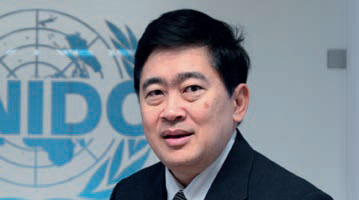
Commission on Narcotic Drugs (CND) Chair
The CND Chair is a rotating position, held this year by Thailand’s Arthayudh Srisamoot. Thailand is very conservative on drugs – it has the death penalty and has, up until recently, pledged to eradicate drugs from the Southeast Asian region. Srisamoot is conservative – he calls drugs a “menace” – but he is more progressive than the Thai Government. At the Commission on Narcotic Drugs in Vienna earlier this year, he said, “The important thing is to strike a balance between the regulatory framework, which also relates to addressing widespread drug abuse and criminal aspects, and taking care of the human dimension.”
Ban Ki Moon
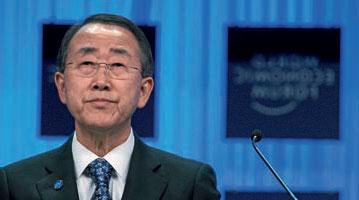
UN Secretary General
The most senior figure at the UN and progressive, Ban Ki Moon has previously called drug addiction “a disease, not a crime”. His predecessor, Kofi Annan, is an outspoken advocate for the legal regulation of drugs, saying, “Drugs may have killed people, but I maintain that wrong governmental policies have killed many more.” Ahead of UNGASS 2016, Ban Ki Moon has urged member states “to conduct a wide-ranging and open debate that considers all options”, which is a diplomatic way of saying that the current system isn’t working, and we need to change tack. While he won’t lead the charge for reform, he will certainly embrace it if it occurs.
Helen Clark
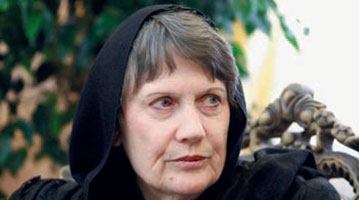
UN Development Programme (UNDP) Administrator
Helen Clark is the third most senior figure at the UN and a reformer. Earlier this year, her agency blasted the War on Drugs as a failure, saying that “policies and related enforcement activities focused on reducing supply and demand have had little effect in eradicating production or problematic drug use”. This is a change in position by the agency and is likely a result of Clark’s leadership. In 2013, she said that “there’s no doubt that the health position would be to treat the issue of drugs as primarily a health and social issue rather than a criminalised issue”. Clark’s concern is developing countries, which means the UNDP is particularly focused on harm reduction to prevent HIV/AIDS.
Michael Botticelli
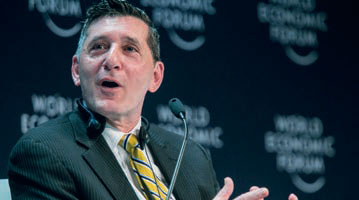
White House Office of National Drug Control Policy Director
Known as the ‘drug czar’ of America and a cautious reformer, Michael Botticelli is a former alcoholic who has said to people with drug problems, “You are my people.” All of his predecessors came from military or Police backgrounds, but he’s worked in drug policy all his life. Although he maintains America’s hard line against drugs crossing the Mexican border, he takes a harmreduction approach at home. He’s called for Police to be trained to use naloxone (an opioid overdose prevention medicine) and the distribution of clean syringes for intravenous drug users. He’s in a unique position – America has traditionally been a big supporter of the War on Drugs, but its liberalisation of drugs at home means it’s shifting its stance abroad.
Werner Sipp
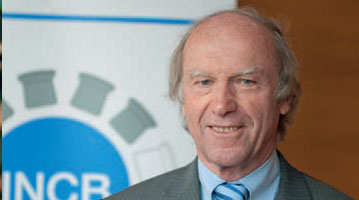
International Narcotics Control Board President
Werner Sipp previously worked as a medical doctor in addiction treatment, so he has seen the power of rehabilitation. At this year’s Commission on Narcotic Drugs in Vienna, Sipp said, “A well balanced drug control system must not rely solely on restriction and law enforcement but must provide sufficient access to prevention, treatment, medication, reduction of the adverse consequences of drug use, rehabilitation and social reintegration for individuals affected by drug use and addiction.” This is significant, as the head of the Narcotics Control agency is supporting a policy of harm reduction.
NGO/civil society preparation
Although nation states will hold the most sway at UNGASS (each state has an equal vote), the non-governmental and civil society sectors will still be able to bring community voices to the United Nations. In the lead-up to the special session, a number of events are being held to ensure the input of affected individuals and advocacy groups working in the drugs sector.
CIVIL SOCIETY TASK FORCE: Formed in March this year, the task force is comprised of 27 members – 18 regional representatives and nine representatives from affected populations. There’s also a four-person steering committee. The task force will conduct regional civil society consultations. The Drug Foundation’s executive director Ross Bell is on the task force, representing Australia, New Zealand and the Pacific. His focus is on the effect global drug policies have on indigenous populations.
CIVIL SOCIETY SURVEY: The task force has also launched a global survey that is designed to provide an initial assessment on the civil society work in the field of drugs as well as to measure the awareness and level of knowledge and interest in participating actively at the UNGASS 2016 initiative at the regional and global levels.
PRE-UNGASS MEETING: The task force has committed to co-hosting a meeting for all NGO, government and other stakeholders prior to the UNGASS, whose conclusions would be an officially recognised document that will be presented to the UN.
REFORM CONFERENCE: In November this year, the Drug Policy Alliance is hosting the Reform Conference in Washington, DC. Hot topic: the best strategies for the non-governmental sector in the lead-up to UNGASS.
SSDP MODEL UNGASS: Students for Sensible Drug Policy will run a model UNGASS at the Reform Conference. Attendees will be given a country, and then a mock special session will be held.
Where is it being held?
UN delegates meet in the recently refurbished General Assembly Hall. Among the many repairs necessary was replacing the gold-leafed background behind the iconic UN emblem, which had become caked with cigarette tar and nicotine. Many environmental improvements were introduced, so energy use is down by half. Each of the member nations (193 at time of print) has six seats, with the 600 remaining seats available for guests, translators, UN secretariat staff and members of the public. It is unclear what access ECOSOC-accredited representatives will be granted.
Book in advance to get an apartment via airbnb for under NZ$200. The closest apartment currently listed is on 41 Street and 2nd Avenue, with a nightly fee of NZ$169. In a city with over 50 million visitors per annum, there is plenty of choice of hotels, whose prices have dropped 13 percent in the last year. Rates average NZ$202 per night.
What is going to happen?
At 4.20pm on 20 April, a Drug Peace March is expected to take to the streets of New York. The European Coalition for Just and Effective Drug Policies is already talking with activists about how to make this happen. Security restrictions mean any rallies are unlikely to get closer than four blocks away from the entrance used by top-level diplomats.
Apart from this, little else is definite. The formal agenda has yet to be set, but it is likely to follow the format adopted at previous special sessions. A preliminary paper and draft resolutions will be prepared by the CND – something the Vienna-based UN body has begun. Although the CND only meets annually, a number of intercessional meetings are scheduled. Much of what has been discussed to date has been procedural, with the beginning of debates on real substance just beginning in June. UN members are now invited to put forward ideas for inclusion into the zero (or first) draft.
Over the three days allocated in April 2016, country representatives and a few others will speak to the resolutions tabled. In 1998, each speaker was restricted to seven minutes, and 158 people spoke over nine UNGASS 20 plenary sessions, including 23 heads of state, eight prime ministers, one vice-president and seven observers. Joining the discussions were several United Nations agencies and programmes as well as some NGO representatives. Speaking on behalf of the New Zealand people was Tuariki John Delamere, Minister of Customs and Associate Minister of Health, who was a New Zealand First MP at the time.
In 1998, there were many side events held alongside the UNGASS. These were hosted by many august international agencies, including the International Labour Organisation, World Health Organisation , UNAIDS, Interpol and numerous NGOs.
With just 50 member states, CND reflects only a quarter of the countries within the UN system. Hosting a drug policy debate at the General Assembly is expected to bring some areas currently off limits in Vienna into the limelight.
Official declarations
- 2014 CND (57th session) high-level review of 2009 Political Declaration and Plan of Action implementation, Joint Ministerial Statement.
- 2009 Political Declaration and Plan of Action.
- 1998 Political Declaration and Plan of Action.
- 1990 Political Declaration and Programme of Action.
- 1987 Declaration of the International Conference on Drug Abuse and Illicit Trafficking.
How times have changed – 20th UNGASS 1998 – world drug problem
Enhanced action to tackle the world drug problem lies at the heart of the political declaration from the 20th UNGASS (A/S-20/4). Prefaced with recognition of how widespread the drug problem is, the declaration bares it motivation for action: “Drugs are a grave threat to the health and well-being of all mankind, the independence of States, democracy, the stability of nations, the structure of all societies, and the dignity and hope of millions of people and their families.”
While supporting better access to treatment and efforts to reduce demand, particular attention is devoted to efforts to curtail illicit manufacture, trafficking and consumption of synthetic drugs and a quest to eliminate or reduce the illicit manufacture, marketing and trafficking of precursors. The need to eliminate drug crops was also stressed. The declaration concluded with the pithy refrain: “Together we can meet this challenge.”
Here are quotes from the General Assembly floor:
Bill Clinton, President of the USA
Drugs are every nation’s problem, and every nation must act to fight them – on the streets, around the kitchen table and around the world. This is the commitment of the United States. Year after year, our Administration has provided the largest anti-drug budgets in history.
Let us leave here determined to act together, in a spirit of trust and respect – at home and abroad, against demand and supply, using all the tools at our disposal – to win the global fight against drugs and build a safe and healthy 21st century for our children.
Tuariki John Delamere, Associate Minister of Health, Minister of Customs – New Zealand representative
Our efforts to strike a balance between supply control, demand reduction and the management of drug problems have helped us reduce significantly the harm associated with illicit drugs in New Zealand.
I note that there are those who vehemently oppose methadone or needle exchange programmes. For me, the answer, “Well, it works”, seems to be the best response to these critics, who I suspect would have us blindly march down the road towards a “war on drugs”, a philosophy that many would consider has not worked.
In many countries, the indigenous people are overrepresented in national statistics on drug-use problems. This, unfortunately, is also true for Mäori, New Zealand’s indigenous people, to whom I belong. I think we need to do much better at empowering indigenous people to understand how they can control the factors that influence their health, such as drug use.
Kofi Annan, UN Secretary-General
It is my hope that they will record this as the time when the international community found common ground in the mission to create momentum towards a drug-free world in the 21st century. It is time for every nation to say “no” to drugs. It is time for all nations to say “yes” to the challenge of working towards a drug-free world.
1998 UNGASS declaration at 10 years
In 2009 Ross Bell, Drug Foundation Executive Director, said this about the lack of progress after the 1998 UNGASS.
I have no problem with aspirations – after all, wouldn’t we all love world peace? But 10 years on, meeting recently in Vienna to assess their progress towards their goals, I believe our political and diplomatic leaders have been hugely irresponsible. They’ve neglected any honest assessment of progress towards the objectives they themselves set. Instead they’ve engaged in mutual back-slapping while ignoring the realities of human suffering around the world – much of which is caused by their own policies.
One significant highlight did emerge from the Political Declaration. This was the recognition that global drug control efforts must be taken in full conformity with international human rights law. For too long the world has seen systematic and egregious abuses of human rights in the name of drug control.
RESOURCES
Report of the UN Drug Debate, April 2015 Drugreporter – http://drogriporter.hu/en/cnd2015
IDPC UNGASS 2016 pages – nzdrug.org/idpc-ungass16
Official UNGASS 2016 website unodc.org/ungass2016
Full analysis: nzdrug.org/1Phs0HM
Recent news

Beyond the bottle: Paddy, Guyon, and Lotta on life after alcohol
Well-known NZers share what it's like to live without alcohol in a culture that celebrates it at every turn

Funding boost and significant shift needed for health-based approach to drugs
A new paper sets out the Drug Foundation's vision for a health-based approach to drug harm

Expert Pharmac committee recommends funding for overdose reversal nasal spray
The expert committee has said funding for naloxone in the community should be a high priority

